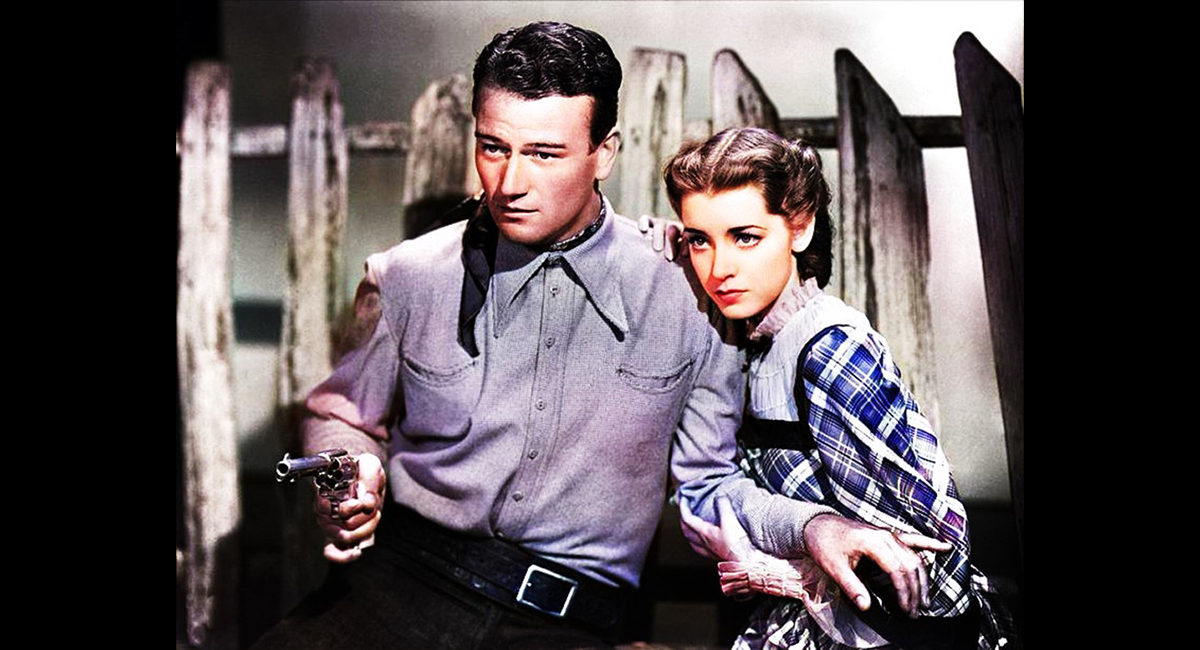“Marsha Hunt, one of the last surviving actors from Hollywood’s so-called Golden Age of the 1930s and 1940s,” NBC News reports, “in a career disrupted for a time by the McCarthy-era blacklist, has died. She was 104.”
Despite working with actors from Lawrence Olivier to Andy Griffith, Marsha Hunt will draw a blank from many filmgoers, even those now up in years. Classic movie fans might also wonder about the “McCarthy-era blacklist” that allegedly disrupted Hunt’s career. There’s a backstory here, but not about Sen. McCarthy.
Senators don’t serve on House committees, like the House Committee on Un-American Activities (HCUA) that snooped around Hollywood. During the 1930s, the committee investigated organizations such as the German American Bund. After WWII, the Communist Party became the focus.
Stalin had set up the Communist International (Comintern) to direct the various national Communist Parties, including the Communist Party USA. The committee was investigating Comintern agent Gerhart Eisler, whose brother Hanns worked as a composer in Hollywood.
When committee investigators showed up to interview Hanns, many in Hollywood came forth with tales of abuse by the communists. From the 1930s onward, Party activists dominated the studio unions, both on the back lots and in the so-called talent guilds. As Budd Schulberg (On the Waterfront) said, the Party was the only game in town.
In November 1947, the committee decided to hold hearings, foolishly focusing on communist movie content, of which there was very little under the studio system. “Friendly” witnesses included New Deal Democrat Ronald Reagan, who fought the Party during violent studio strikes and jurisdictional disputes following the war. Ginger Rodgers, Adolphe Menjou, and Robert Taylor also testified.
The “unfriendlies,” screenwriters prominent among them, numbered 19. Billy Wilder famously quipped that only a few were talented; the rest were just unfriendly. The 19 were pared down to the famous Hollywood Ten, all communists, including Dalton Trumbo, who joined the Party during the Nazi-Soviet Pact and stayed in long after many others left.
Before the hearings, studio bosses defied the committee and said they would not fire communists. After the hearings, they changed their tune and blacklisted the communists. Writers like Trumbo could work under fake names, but for actors, it was a problem.
Marsha Hunt was not a communist, but she was a member of the Committee for the First Amendment, a celebrity group that protested the committee and supported the Ten. Studio bosses held that against her. The Party also ensnared many liberal actors in front groups, and some wound up on studio blacklists.
Some careers took a hit, but the blacklist does not deserve the blame in all cases. Hollywood has always been a place of lists, and actors can easily fall out of favor. Some agents were asking too much for their clients, and those were hard days for the studios, which lost their theater chains and faced a new threat from television.
Marsha Hunt was born in 1917, and by the 1950s, few performers of that vintage could expect as many screen roles as back in the glory days. Like others, Hunt chose to work in theater and television and by the late 1950s was making movies again.
The talented actress is much more than the victim of any blacklist, let alone one wrongly associated with Sen. Joseph McCarthy. He did not hit his stride until 1950, three years after the hearings, and never had anything to do with Hollywood.
Back in 1939, Marsha Hunt was reportedly up for the role of Melanie in David Selznick’s Gone with the Wind. The part went to Olivia de Havilland, who during the 1940s challenged the studios over their onerous seven-year contracts. De Havilland prevailed, and she also teamed with Ronald Reagan against the Stalinists in the talent guilds.
Olivia de Havilland passed away in July of 2020 at the age of 104, the same amazing age as Marsha Hunt. Both stars were survivors, triumphs of sheer staying power, and reminders of a Golden Age now gone with the wind.








